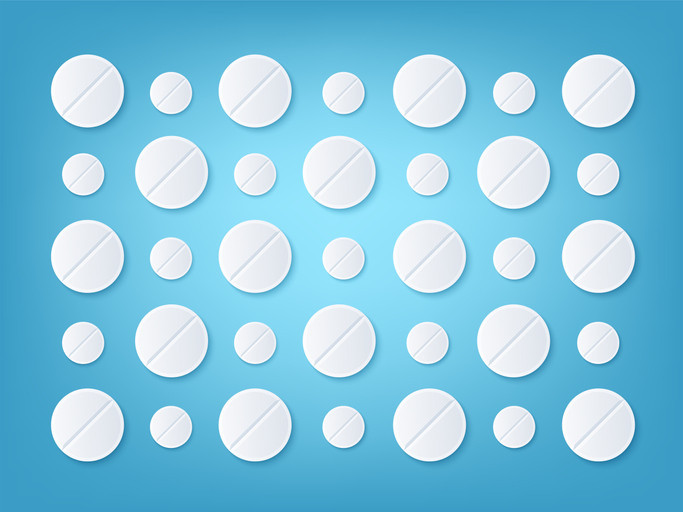
Avocado nutrition: Health benefits and easy recipes

Swimming lessons save lives: What parents should know

Preventing and treating iliotibial (IT) band syndrome: Tips for pain-free movement

Wildfires: How to cope when smoke affects air quality and health

What can magnesium do for you and how much do you need?

Dry socket: Preventing and treating a painful condition that can occur after tooth extraction

What happens during sleep �� and how to improve it

How is metastatic prostate cancer detected and treated in men over 70?

Could biofeedback help your migraines?

What is autism spectrum disorder?
Medications Archive
Articles
How high a fever is too high?
A fever is the immune system's response to an infection or invader. Most fevers drop after people take over-the-counter medications. People should call a doctor if their fever reaches 103° F and go to an emergency room if it reaches 105°.
Aspirin and bone health: Is there a connection?
Aspirin has many proven benefits and some research has linked its use to a lower risk for fractures after falls. Now, a more rigorous study finds a daily dose offers no added protection from serious falls and fractures compared with placebo.
Americans' use of prescription sleep medications drops dramatically
A 2022 study found a 31% reduction in Americans' use of prescription sleep aids from 2013 to 2018. The drop-off was even sharper among people 80 and older, who were 86% less likely to use FDA-approved sleep drugs by the end of the study period.
When the first step is the hardest
Women are twice as likely as men to develop plantar fasciitis, the most common cause of chronic heel pain. Pain is worst in the morning and eases over the course of the day. Older adults, some athletes, and people who are overweight or obese are likelier to develop plantar fasciitis. Mainstay treatments include stretches, medication, night splints, and supportive shoes. Emerging treatments include injections of botulinum toxin (Botox), platelet-rich plasma, or fat.
The real power of placebos
Science suggests that the placebo effect, in which a person derives a physical benefit from a fake treatment, can have real health benefits for managing pain. It may even work if people are aware that the treatment is a sham. The ritual of receiving treatment is essential for the placebo effect to work, and it's possible for people to tap into its benefits by adopting healthy habits that require rituals and procedures like healthy eating, exercise, and meditation.
Are your medications keeping you up at night?
Many medications can affect sleep. These include prescription drugs as well as over-the-counter remedies. For example, decongestants, certain antidepressants, or beta blockers can make it hard to fall or stay asleep, and nicotine replacement medications can cause a person to have nightmares. Strategies to avoid drug-related sleep problems include taking the medication during the day, taking a lower dose, practicing good sleep hygiene (such as going to bed and waking up at the same time each day), or switching to a new medication.
Some heart patients need antibiotics before dental work
People with certain heart conditions, including a replaced or repaired heart valve, should take antibiotics before invasive dental procedures. This helps prevent endocarditis, a serious heart infection often caused by bacteria from the mouth.
Polypill may help prevent repeat heart attacks
For heart attack survivors, taking a polypill that contains a blood pressure drug, a cholesterol-lowering statin, and low-dose aspirin may help prevent more future heart attacks and serious heart problems than usual care that includes several separate drugs.
What is an annual wellness visit?
The routine yearly medical check-up is now more often referred to as the annual wellness visit, which allows people to formulate detailed health goals with their doctor and design plans to meet them, as well as assess the possibility of life-changing events, like heart attack, stroke, and cancer.
New guidelines on opioids for pain relief: What you need to know
The CDC's 2016 guidelines for prescribing opioid medications aimed to reduce deaths from overdose. Recent revisions to these guidelines aim for refinement while emphasizing safety and the importance of finding the best treatment solution for each person.

Avocado nutrition: Health benefits and easy recipes

Swimming lessons save lives: What parents should know

Preventing and treating iliotibial (IT) band syndrome: Tips for pain-free movement

Wildfires: How to cope when smoke affects air quality and health

What can magnesium do for you and how much do you need?

Dry socket: Preventing and treating a painful condition that can occur after tooth extraction

What happens during sleep �� and how to improve it

How is metastatic prostate cancer detected and treated in men over 70?

Could biofeedback help your migraines?

What is autism spectrum disorder?
Free Healthbeat Signup
Get the latest in health news delivered to your inbox!
Sign Up











